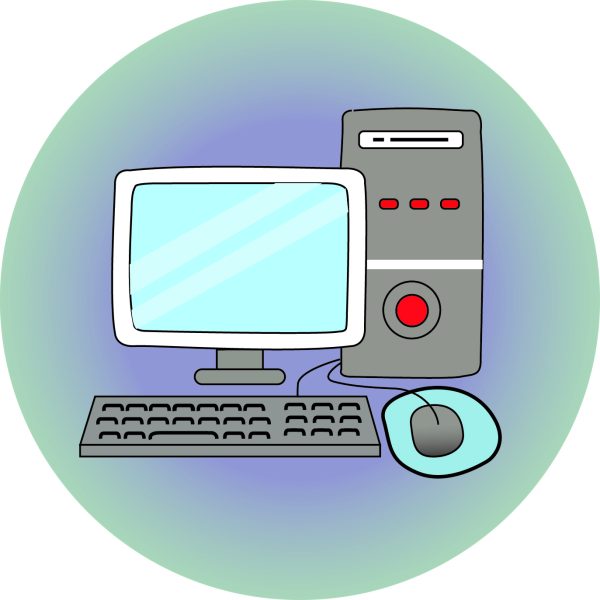The Straining Issues Amongst Screen Time
December 8, 2020
Amidst the coronavirus pandemic, the virus has caused billions of people to stay home to prevent catching the disease and the use of mobile phones, televisions, and other electronic devices in the average individual’s home has increased. This has brought up questions about how much screen time is too much screen time especially during these difficult times.
With schools being shut down across the country, online school has become the only viable option available. As online school is in full swing for millions of students, the average amount of screen time per day has exceedingly passed the recommended one hour for many students.
As the average school day surpasses six hours, the minimum amount of screen time would be that same amount, which is a massive increase for almost everyone. Studies in numerous interviews with CBS have described how excessive screen time may lower children’s academic performance. Other studies have found that excessive screen time can harm children’s health by increasing obesity or disrupting sleep.
The findings by CBS seem to suggest that there is an association, albeit a weak one, between two hours or more of screen time each day and increased levels of depression among school-aged children. This can not only affect a child’s academic performance, but their mental health and development as well.
As screen time is involuntarily increasing for millions, staring at a screen for extended periods of time can cause “computer vision syndrome.” Symptoms include strained, dry eyes, blurred vision, and headaches. Poor posture can also cause neck and shoulder pain.
Sophomore Nick Dalton states, “Even though I spend over eight hours on my phone, television, or XBOX per day, I still believe my screen time is productive and beneficial for my everyday life, as life would be completely different without it.” Dalton does bring up a valid point. If screens were non-existent, no one would live the same lives they do today. The ability to contact people, whether they are family members or work colleagues, would be extremely difficult if electronics did not exist.
Dalton states he is on his phone for an excess of eight hours per day due to COVID-19, whereas science suggests for individuals to access a maximum of one hour of screen time per day. Overall, it seems extremely unhealthy to the eyes and body.
With coronavirus cases continuing to rise, junior Lilly Brown states, “The amount of time I have been on my phone since corona started has increased a lot. The virus has definitely increased my amount of screen time, and it’s beginning to become excessive.” As online classes begin to pour excessive amounts of homework on students of all ages, most work will be done online. As six or seven hour average class times take up the average student’s day, nearly 95 percent of that time will be on-screen.
Freshman Ruby May also shares her struggles with excessive screen time, stating, “Screen time consumes most of my day. This year, I think that online school is the biggest contributor to my screen time so I don’t like how much screen time school brings. My life wouldn’t be much different but I think I would get less headaches and be more awake.” One of the most problematic issues with too much screen time are the younger, developing students all sharing the same dilemma of not experiencing a fun and outgoing elementary childhood. Instead, they are forced to stay home and stare at a screen for hours at end.
The same goes for high school seniors and college students, who are missing out on an entire academic year in the “best years of their lives” due to COVID restrictions. Senior Ryan Vandenberg describes his feelings on this, pointing out, “During lockdown, I have been on my phone or Xbox nearly twelve hours a day and, honestly, part of it is endlessly scrolling through apps to waste time. I was extremely upset to hear about the shutdown of schools as I can no longer have a normal senior year, which I wanted to have.”
Among others such as Vandenberg, large numbers of individuals not only hate to see an entire year of academic schooling diminish in front of their eyes, but they also hate to see how they have to become dependent on screens in their everyday lives.
If a student struggles with eye strain or other eye issues, an easy suggestion would be the purchasing of “blue-light glasses.” Their purpose is to block harmful blue light that comes off an electronic screen, preventing eye strain, early-age vision issues, and other eye-related problems.
Solutions such as blue light glasses have been proven to prevent numerous early-age sight issues, and have become a stepping stone for other inventions and products to reach center stage and improve an individual’s physical and mental health. Other products such as Iris Massagers, Orbital stones, and Cooling/heating Eye Masks have all reached the top-end product line for eye strain issues. These creations have been scientifically recommended and produced a positive reinforcement to constant screen time.
Overall, it will be interesting to see how the virus will impact students’ future screen time and how schools will adjust to help with students’ mental health.




